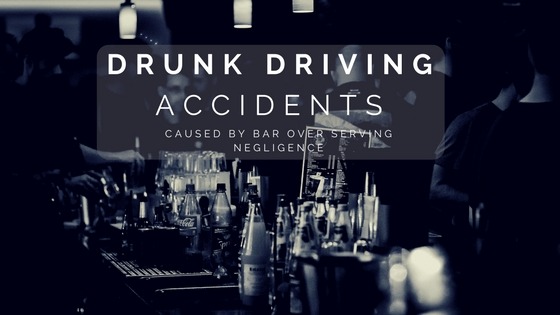Alcohol and vehicles are a dangerous combination. In the year 2015, approximately one-third of all accident related deaths were caused by drunk driving. Society generally places the blame on the driver. However, the law allows other parties to be implicated as well. Bars, restaurants and nightclubs may be held liable in DUI crashes under dram shop laws. These laws hold businesses accountable for their role in facilitating drunk driving.
What Are Dram Shop Laws
Dram shop laws assign a share of the responsibility for DUI related collisions to the retailers who profit from alcohol sales. In some jurisdictions even a social host may be held liable. In order for these laws to apply, an establishment must continue to sell alcohol to a patron who is clearly already intoxicated. Most states determine whether a seller should’ve known of the patron’s intoxicated condition by applying a version of the obvious intoxication test.
A Look at Obvious Intoxication
The standard for obvious intoxication is objective in nature. The test asks whether the patron’s behavior or appearance indicates a state of drunkenness to a reasonable person. The reasonable observer must be able to make a certain determination that the patron is intoxicated at the time the alcohol is furnished. Observations about the type and amount of alcohol consumed may be factored in. The actions or behavior of the patron immediately after receiving the drinks may also be applicable.
The Texas Version of The Dram Shop Act
Texas enacted a dram shop act in 1987. Prior to that, there was no legal liability for continuing to serve a drunk patron. The current version of the law is found in Chapter Two of the state’s Alcoholic Beverage Code.
Under the Texas law, proving liability requires establishing two separate elements. First, the alcohol provider must have a clear indication that patrons are intoxicated to an extent that makes them a danger to themselves or others. Second, the inebriation must be the proximate cause of damages caused by the patron. In a civil action, proximate cause is established by showing the injury occurred as a natural and direct consequence of the act in question.
Injuries and Damages
When filing a dram shop action the plaintiff can sue for the injuries that resulted from the drunk driving accident. These include soft tissue injuries, broken bones or spinal injuries. It is also possible to sue for emotional damage. Some types of emotional injuries include loss of consortium, pain and suffering or emotional distress.
A plaintiff may also seek damages for a wrongful death claim in conjunction with dram shop liability. In a wrongful death lawsuit the plaintiff seeks compensation for the economic loss that occurs due to the death. A plaintiff may get the economic value of lost wages, loss of benefits and medical bills. Plaintiffs can also be compensated for the emotional damage associated with losing a loved one.
Legal Safe Harbors For Businesses
Some alcohol providers may be insulated from dram shop liability due to safe harbors in the law. To qualify an establishment must prove three things. It must be shown that training to prevent excessive serving was provided. It also needs to be proven that the staff member accused of over-serving attended the training. Finally, it needs to be established that the business does not promote over-serving. This safe harbor is usually asserted as a defense.
Summing Up Dram Laws
The reason for dram shop laws is to dissuade people from putting profits over public safety. These laws ensure that alcohol establishments act as ethical, responsible members of the community. Drivers and businesses need to be held accountable together to prevent future drunk driving accidents.
Call our law offices today at any of our convenient locations and get a free consultation.
You can also contact us online by using our quick contact form.











